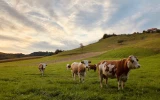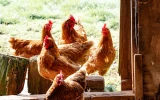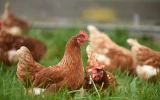13 Small-Farm Animals That Can Be Left Alone (Well)
If you're looking to start a small agricultural business, you may be wondering which animals can be left alone without too much supervision. While many animals require daily care and attention, some small-farm animals do well when left alone for long periods. In this article, we'll explore 13 small-farm animals that can be left alone.
Good choices for small-farm animals that can be left alone include chickens, ducks, rabbits, goats, sheep, pigs, and turkeys. Geese, cows, donkeys, llamas, guinea pigs, and alpacas on small farms can also be left alone for periods and can be provided with a safe, comfortable living space, ample food, and water.
These small-farm animals can be left alone well without requiring more daily attention. Let's explore their feeding habits, housing requirements, and potential health risks associated with leaving them alone.
Summary
- Chickens, ducks, rabbits, goats, sheep, pigs, and turkeys can be left alone for periods, so long as their basic needs are met.
- Additionally, taking the proper precautions to protect geese, cows, donkeys, llamas, guinea pigs, and alpacas from predators and other hazards is essential.
- With the right setup, these animals can be left alone while the farmer is away.
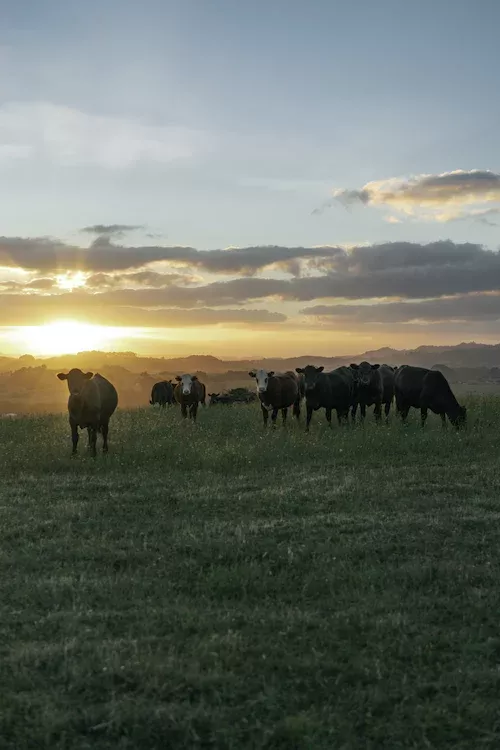
On this page:
Animals On Small Farms That Can Be Left Alone Well
Here are 13 animals that can be left alone and require minimal maintenance. They are ideal for those who want to own animals but don't have the time or resources to commit to full-time animal care. From chickens to goats to ducks, these animals are sure to make your small-farm dreams come true.
1. Chickens require minimum human help
Chickens can forage and scavenge for food on their own, allowing them to feed themselves without human help. They generally stay in flocks, which makes them easier to monitor and manage. They are relatively low-maintenance animals and have basic needs that can easily be met.
Chickens are relatively hardy and can handle adverse weather conditions. They do not require a large area to roam and can be confined to a smaller area if necessary. They are not prone to disease and require minimal veterinary care. They also reproduce quickly and can replenish their numbers in a short period.
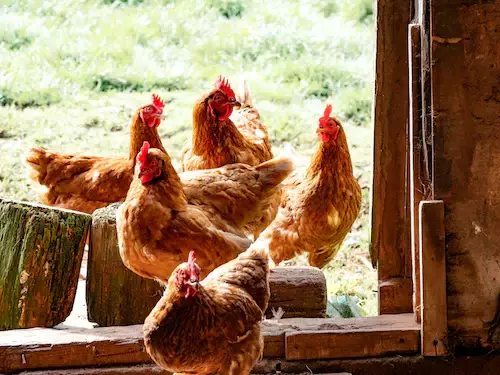
2. Ducks are independent, hardy, and low-maintenance animals
Ducks can fend for themselves when it comes to finding food, as they are omnivores and will happily eat grain, insects, and weeds from around the farm. They also have a good sense of self-preservation, which means that they will stay away from predators.
Ducks are accustomed to a wide range of climates, so they can tolerate extreme cold or hot temperatures. They are also relatively quiet animals, so they won’t disturb the peace of a small farm. Finally, ducks don’t require a lot of space, meaning that a small farm can easily accommodate a few ducks without taking up too much space or resources.
3. Rabbits are hardy and require very little care
Rabbits are prey animals so they can take care of themselves, avoiding predators and foraging for food. Rabbits are also very social and can live in large groups, so they don’t need human contact to feel secure.
Rabbits can also be trained to use a litter box, making it easy to clean up after them. They can also be fed a diet of hay and pellets, which is easy to find and store. Finally, rabbits reproduce quickly, so farmers don’t need to worry about replenishing their stock.
4. Goats are incredibly independent animals which makes them ideal for small farms
Goats are highly adaptable, able to tolerate a variety of climates, and are relatively low maintenance. Goats require very little in the way of shelter, and can often thrive on what is available in their natural environment.
They are also excellent browsers, able to consume a wide variety of vegetation and weeds, which makes them ideal for controlling overgrowth and keeping the land around them clear. As such, goats can stay out of trouble and need less supervision than other animals, allowing them to be left alone on small farms.
5. Sheep are typically docile and require minimal space
Sheep do not require a lot of fussing and can be left to graze and roam on their own. They don't need to be walked or taken on regular trips to the vet, which makes them very convenient for small farms with limited resources. Sheep are also hardy animals that can withstand cold weather and other extreme conditions, making them ideal for small farms in rural areas with often harsh climates.
In addition, sheep are relatively easy to care for and don't require any special equipment, making them a cost-effective option for farmers. Sheep are also a great choice for small farms because they provide a valuable product in the form of wool, meat, and milk.
6. Pigs are intelligent and social creatures that can easily entertain themselves
Pigs can root around the soil to find grubs and other food, and they can construct their wallows and shelter in the shade of trees. Pigs are also very good at avoiding danger, so they can sense when predators are near and take evasive action.
They also have a great sense of smell and hearing, which allows them to stay away from potential dangers. Pigs are also very social animals and can become quite attached to their owners, so they don't need constant attention to be happy.
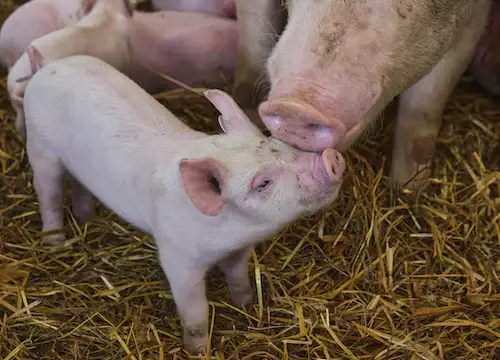
7. Turkeys can forage for their food
Turkeys can be left alone on small farms because they can forage for their food, such as grasses, insects, and other small animals. Turkeys also have the instinct to stay close to their flock, which makes them less likely to wander away from the farm.
Turkeys also have a strong ability to protect themselves from predators, such as coyotes or foxes, by flocking together and making loud noises. Additionally, turkeys are social animals that require minimal human interaction.
8. Geese have excellent natural defenses
Geese have very good vision and can spot potential predators from far away. They are also very loud and honk when alarmed, warning other animals on the farm of potential danger. Geese are also very territorial and will actively attack and chase away predators they deem a threat.
Geese are also strong and can be quite intimidating when they feel threatened. Lastly, geese are highly social and form close bonds with other geese, meaning they will often stick together and alert each other of potential danger.
9. Cows are relatively low-maintenance animals
Cows can find the majority of their nutrition from grazing on grass, so they require minimal supplemental feed and hay. They also have the instinct to stay close to their home base, so they are unlikely to wander away from the farm.
Cows are also generally quite content to stay in one place and are not known to be overly active or destructive. Finally, cows are social animals and can be left alone in a herd as they are not prone to fighting with each other.
10. Donkeys are known for their sure-footedness and calm temperament
Donkeys are quite hardy and can fend for themselves as long as they have access to food and water. Donkeys are also strong and can pull carts or plows, making them a useful asset for farmers.
They are also intelligent and able to recognize their owners and other animals on the farm, which makes them great for guarding livestock. Donkeys are also quite social and need companionship, so it is best to keep at least two of them together, but they will still do just fine being left alone on a small farm.
11. Llamas are very independent animals
Llamas have a strong survival instinct and can fend for themselves in the wild. They require minimal care and can feed themselves on grass, shrubs, and hay. Llamas are also relatively low-maintenance, as they require minimal vaccinations, de-worming, and hoof trimming.
Additionally, llamas are very alert and have the ability to sense danger. They are also very protective of their herd, making them an excellent guardian for other animals on the farm.
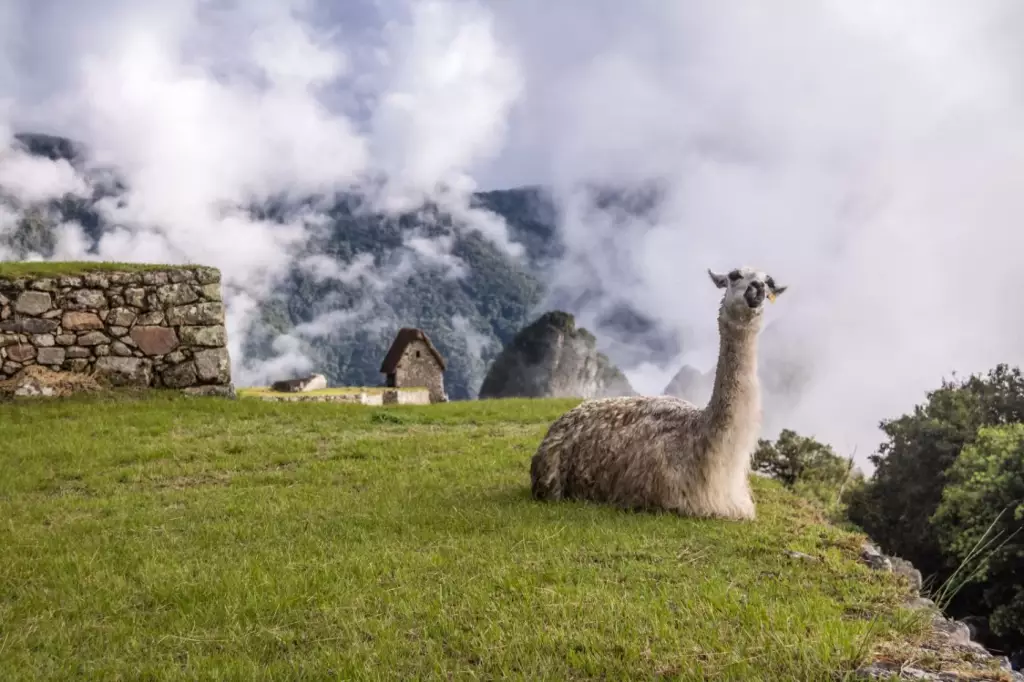
12. Guinea pigs are capable of surviving on their own
Guinea pigs are small and require limited space, making them suitable for small farms. They are also social animals, so they can form colonies and live together in groups. They are herbivores and can feed off of the vegetation that is available on small farms, such as grass and hay. They are also fairly hardy and can withstand varying temperatures, meaning they can easily thrive in the outdoor environment of a small farm.
13. Alpacas are naturally very gentle creatures
Alpacas have a very docile nature and are not easily startled or aggressive. Alpacas are also very hardy animals and can thrive in a variety of climates including cold and hot temperatures. In addition, they are not prone to disease and can remain healthy with proper nutrition and regular vaccinations.
Alpacas also have a strong instinct that allows them to protect themselves from predators. They are also able to find shelter and food on their own in the wild, making them ideal for small farms where there is limited human intervention.
